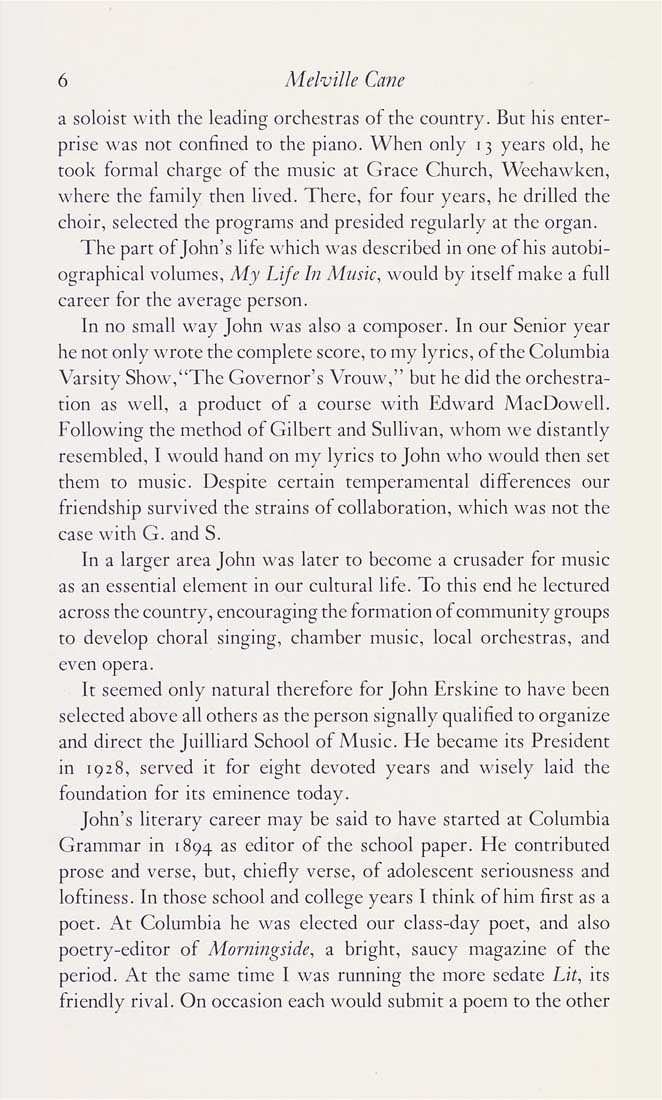Columbia Library columns (v.7(1957Nov-1958May))
(New York : Friends of the Columbia Libraries. )
|
||
|
|
|
|
| v.7,no.1(1957:Nov): Page 6 |

6 Melville Cane a soloist with the leading orchestras of the country. But his enter¬ prise was not confined to the piano. When only 13 years old, he took formal charge of the music at Grace Church, Weehawken, where the family then lived. There, for four years, he drilled the choir, selected the programs and presided regularly at the organ. The part of John's life which was described in one of his autobi¬ ographical volumes. My Life In Music, would by itself make a full career for the average person. In no small way John was also a composer. In our Senior year he not only wrote the complete score, to my lyrics, of the Columbia Varsity Show,"The Governor's Vrouw," but he did the orchestra¬ tion as well, a product of a course with Edward MacDowell. Following the method of Gilbert and Sullivan, whom we distantly resembled, I would hand on ray lyrics to John who would then set them to music. Despite certain temperamental differences our friendship survived the strains of collaboration, which was not the case with G. and S. In a larger area John was later to become a crusader for music as an essential element in our cultural life. To this end he lectured across the country, encouraging the formation of community groups to develop choral singing, chamber music, local orchestras, and even opera. It seemed only natural therefore for John Erskine to have been selected above all others as the person signally qualified to organize and direct the Juilliard School of Music. He became its President in 1928, served it for eight devoted years and wisely laid the foundation for its eminence today. John's literary career may be said to have started at Columbia Grammar in 1894 as editor of the school paper. He contributed prose and verse, but, chiefly verse, of adolescent seriousness and loftiness. In those school and college years I think of him first as a poet. At Columbia he was elected our class-day poet, and also poetry-editor of Morningside, a bright, saucy magazine of the period. At the same time I was running the more sedate Lit, its friendly rival. On occasion each would submit a poem to the other |
| v.7,no.1(1957:Nov): Page 6 |







